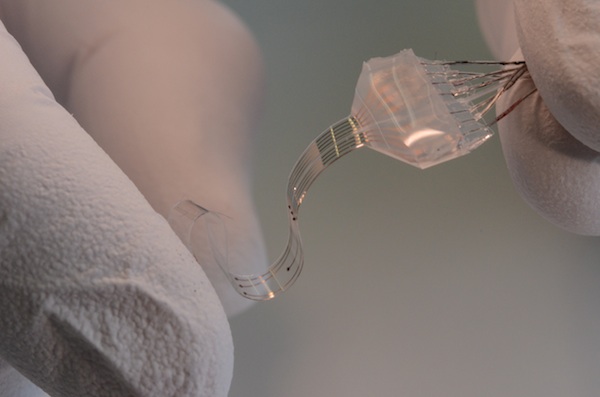Podcast: Play in new window
BOB HIRSHON (host):

Flexible neural implants. I’m Bob Hirshon and this is Science Update.
Researchers have long been working on implantable microchips to treat paralysis. But according to bioelectrical engineer Stéphanie Lacour, at the Swiss Federal Institute of Technology in Lausanne, rigid computer chips don’t work well in flexible human tissue.
Stéphanie Lacour (Swiss Federal Institute of Technology in Lausanne):
The brain pulsates with blood flow; the spinal cord can stretch and relax during daily movement. And so in order to have an implant that really integrates with the nervous tissue, we need an implant that can accommodate the natural movement of the neural tissue.
HIRSHON:
In the journal Science, she and her colleagues describe a soft, flexible spinal cord implant that triggered the leg muscles of paralyzed lab rats for weeks, without malfunctioning or causing inflammation. The goal is to make a neural prosthesis for humans that could last a lifetime. I’m Bob Hirshon, for AAAS, the science society.
